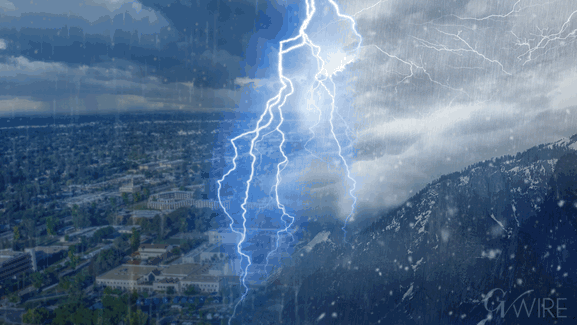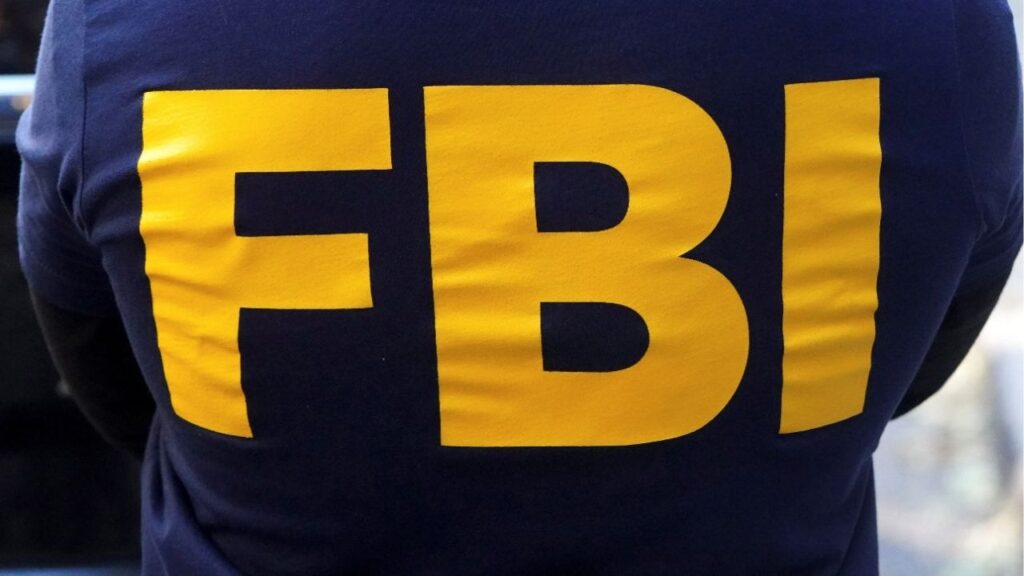Trump campaign claims Iranian hackers stole sensitive documents, raising concerns about foreign interference in 2024 election. (AP/Ben Gray)

- Campaign spokesperson blames "foreign sources hostile to the United States" for the alleged hack.
- Microsoft report details Iranian military intelligence unit's phishing attempt on a presidential campaign in June.
- Iran denies involvement, but has long been suspected of running hacking campaigns against perceived enemies.
Share
|
Getting your Trinity Audio player ready...
|
Donald Trump was once a cheerleader of publicizing hacked materials. “Russia, if you’re listening,” Trump said during a press conference in his 2016 presidential run, when Hillary Clinton’s deleted personal emails were a hot topic, “I hope you are able to find the 30,000 emails that are missing.”
“I think you will probably be rewarded mightily by our press,” he said back then.
That changed when Trump’s latest presidential campaign declared this weekend it had been hacked by Iran.
“Any media or news outlet reprinting documents or internal communications are doing the bidding of America’s enemies and doing exactly what they want,” Steven Cheung, the campaign’s communications director, said in a statement on Saturday announcing that the campaign had been hacked.
The campaign has not responded to questions about why its view on hacking changed, including a query on Monday from The Associated Press. But its new position is a striking change from 2016, when Trump heartily embraced the Russian hacking of his opponent Clinton’s aides and the Democratic National Committee.
The campaign provided no specific evidence of Iran’s involvement, but the claim comes a day after Microsoft issued a report detailing foreign agents’ attempts to interfere in the U.S. campaign in 2024.
It cited an instance of an Iranian military intelligence unit in June sending “a spear-phishing email to a high-ranking official of a presidential campaign from a compromised email account of a former senior advisor.”
Trump campaign spokesperson Steven Cheung blamed the hack on “foreign sources hostile to the United States.” A spokesperson for the National Security Council said in a statement that it takes any report of improper foreign interference “extremely seriously” and condemns any government or entity that attempts to undermine confidence in U.S. democratic institutions, but said it deferred to the Justice Department on this matter.
Related Story: Iran Reportedly Plans Attack on Israel During Jewish Day of Mourning
Iran Denies Involvement in Hack
Iran’s mission to the United Nations, when asked about the claim of the Trump campaign, denied being involved. “We do not accord any credence to such reports,” the mission told The Associated Press. “The Iranian government neither possesses nor harbors any intent or motive to interfere in the United States presidential election.”
However, Iran long has been suspected of running hacking campaigns targeting its enemies in the Middle East and beyond. Tehran also long has threatened to retaliate against Trump over the 2020 drone strike he ordered that killed prominent Revolutionary Guard Gen. Qassem Soleimani.
The U.S. Justice Department this past week unsealed criminal charges against a Pakistani national with ties to Iran alleged to have plotted assassination attempts against political figures in the United States, including potentially Trump, and to have sought to hire purported hitmen who were actually undercover law enforcement officials. Court documents in that case pointedly noted a desire by Iran to conduct operations against perceived enemies of the regime and to avenge the killing of Soleimani.
Related Story: Why Is Iran Expected to Attack Israel? What to Know About the Crisis.
Details of the Hack Emerge
Politico first reported Saturday on the hack. The outlet reported that it began receiving emails on July 22 from an anonymous account. The source — an AOL email account identified only as “Robert” — passed along what appeared to be a research dossier the campaign had apparently done on the Republican vice presidential nominee, Ohio Sen. JD Vance. The document was dated Feb. 23, almost five months before Trump selected Vance as his running mate.
“These documents were obtained illegally” and “intended to interfere with the 2024 election and sow chaos throughout our Democratic process,” Cheung said.
He pointed to the Microsoft report issued Friday and its conclusions that “Iranian hackers broke into the account of a ‘high ranking official’ on the U.S. presidential campaign in June 2024, which coincides with the close timing of President Trump’s selection of a vice presidential nominee.”
“The Iranians know that President Trump will stop their reign of terror just like he did in his first four years in the White House,” Cheung said, adding a warning that “any media or news outlet reprinting documents or internal communications are doing the bidding of America’s enemies and doing exactly what they want.”
Cheung did not immediately respond to questions about the campaign’s interactions with Microsoft on the matter. Microsoft said Saturday it had no comment beyond its blog post and Friday report.
In that report, Microsoft stated that “foreign malign influence concerning the 2024 US election started off slowly but has steadily picked up pace over the last six months due initially to Russian operations, but more recently from Iranian activity.”
The analysis continued: “Iranian cyber-enabled influence operations have been a consistent feature of at least the last three U.S. election cycles. Iran’s operations have been notable and distinguishable from Russian campaigns for appearing later in the election season and employing cyberattacks more geared toward election conduct than swaying voters.”
“Recent activity suggests the Iranian regime — along with the Kremlin — may be equally engaged in election 2024,” Microsoft concluded.
Related Story: Security Firm: Chinese Hackers Broke Into Email Security Appliance in Spying ...
Specifically, the report detailed that in June 2024, an Iranian military intelligence unit, Mint Sandstorm, sent a phishing email to an American presidential campaign via the compromised account of a former adviser.
“The phishing email contained a fake forward with a hyperlink that directs traffic through an actor-controlled domain before redirecting to the listed domain,” the report states.
Vice President Kamala Harris’ campaign did not immediately respond to a request for comment on the reported hacking or on the Democratic nominee’s cybersecurity protocols.
Looking Back at 2016
In 2016, intelligence officials said Russian hackers obtained thousands of emails from the Democratic National Committee, the Democratic Congressional Campaign Committee, and the personal account of Clinton’s campaign chairman, John Podesta. The initial batches came out in the summer, as Clinton clinched the Democratic nomination.
That was when Trump encouraged Russia to find his rival’s personal emails. He later argued he was joking.
The hacked material was released through third parties, including the online site Wikileaks, which began to publish daily tranches of Democratic documents in October, just after a videotape of Trump bragging about how he’d sexually assaulted women was disclosed.
Trump routinely touted the Democratic leaks at his campaign rallies, including declaring at one: “I love Wikileaks.”



















